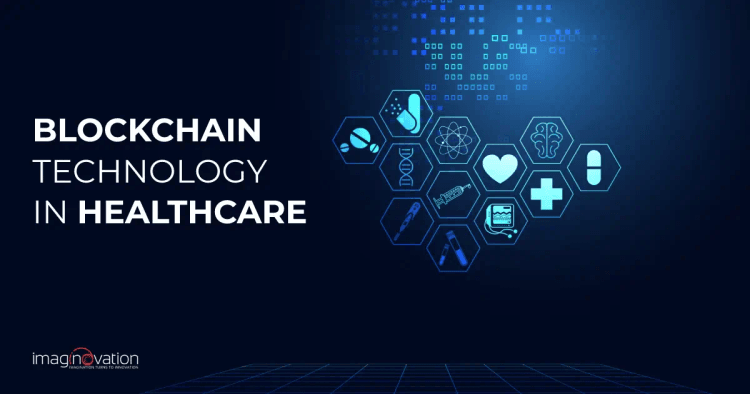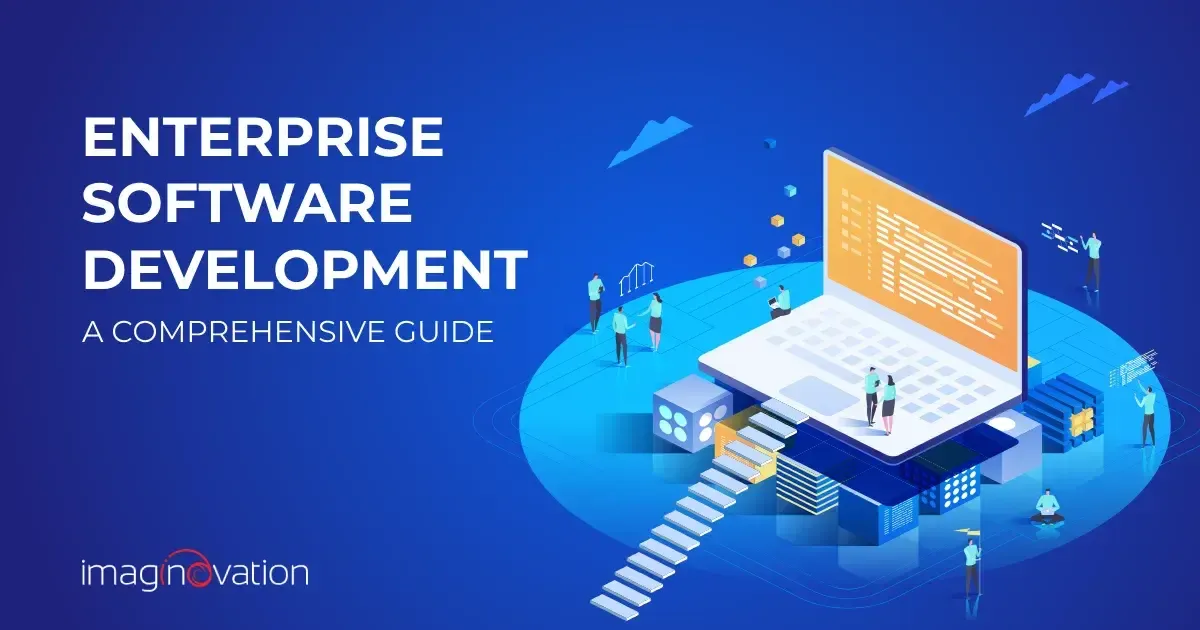To estimate the cost of building a website or an app, use our app cost calculator tool.
Blockchain in healthcare offers countless possibilities. It is no wonder why there has been a growing surge of interest over the past several years.
At heart, blockchain technology can help healthcare providers enhance patient experiences. There is, of course, a catch!
The growing virtual nature of medical care has placed the security, accessibility, and privacy of health data under scrutiny. Here, disruptive blockchain applications are offering promising solutions. It is helping to unlock value and change the face of the healthcare landscape.
The true potential of healthcare blockchain remains ahead of us. And, you can leverage the technology to transform patient experiences.
How?
Let’s explore.
Understanding Blockchain in Healthcare
At its core, Blockchain is a decentralized ledger system that maintains a database of transactions through interconnected "blocks” of data. Each block is “chained” to the previous one, forming a chronological record.
While diverse data can be stored within these linked blocks, transactions such as product inventories and financial records are the most prevalent examples.
Once something is recorded on the blockchain, it's as if it's set in stone and can't be changed. It's super secure!
Unlike regular databases with tables, blockchain stores data in blocks, creating a permanent timeline of transactions. It's like a never-ending chain that keeps everything in order and ensures nobody can mess with it.
Blockchain technology is increasingly being applied in the healthcare industry to address many critical challenges. For example, with blockchain, we can have a tamper-proof system for storing and sharing patient information, ensuring confidentiality and reducing the risk of data breaches.
Blockchain also streamlines the healthcare ecosystem by improving data interoperability. It enables the seamless exchange of medical records, eliminating manual reconciliation and reducing administrative burdens.
Besides, blockchain-based smart contracts automate agreements, simplifying payment processes and supply chain management.
The Current State of Patient Experience
In the era of healthcare transformation, the healthcare industry is continuously evolving.
Over the past two decades, especially, healthcare facilities have experienced remarkable technological advancements.
However, the potential of innovative technology to enhance digital patient engagement remains underutilized.
Moreover, we can see that telemedicine services have skyrocketed, especially during the covid, indicating yet another shift in the future of healthcare.
So, gone are the days when patients had no option but to physically visit hospitals for every issue. In today's digital age, patients can engage with their healthcare providers remotely, addressing minor concerns and receiving guidance for managing their illnesses and diseases.
However, digital patient engagement in hospitals is still in its early stages, and patients often face challenges in accessing the care they need.
Here are the common patient pain points that hinder their engagement with healthcare websites and patient portals. Unfortunately, these pain points deter patients from actively engaging with your healthcare facility, leading to below-par patient experiences and limited digital patient engagement.
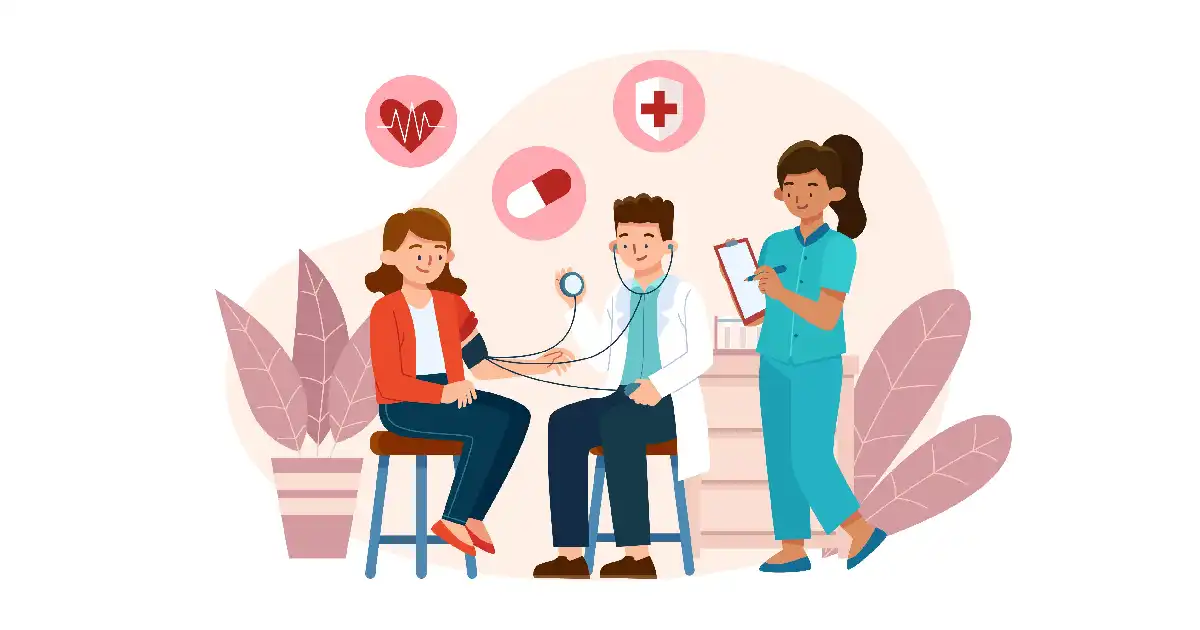
1. Limited patient portals in healthcare
In many hospitals and clinics, the websites offer limited functionality for patients. This creates a huge drawback. As a result, patients often have to carry their medical records and appointment schedules manually. This is despite the relatively low implementation cost of patient portals.
To meet patient expectations, it is crucial to provide dedicated, user-friendly websites and ensure quick access to medical information. Unfortunately, many existing portals offer a clunky user experience, and only a few organizations have implemented mobile apps.
2. Missing critical patient resources in healthcare
Hospitals usually don't offer virtual tours or have a map showing their services. But, such patient resources are useful, especially for the elderly.
Healthcare portals also lack digital information about procedures before and after operations. Another problem is the lack of content to educate patients about insurance benefits.
3. Outdated legacy computer systems in hospitals/clinics
The continued use of legacy systems in hospitals can hinder operational efficiency, compromise data security, limit interoperability, and impede the adoption of modern healthcare technologies.
This leads to longer wait times between appointments and treatments.
4. Complexity in finding care providers
The process of finding a care provider is often complex and should be simplified.
Patients also require assurance that their health plans cover the physicians they are shown, but this information is not available on most portals. Additionally, smaller clinic pages lack a feature to help patients find a physician.
5. Missing patient surveys and testimonials on portals
Many hospitals neglect to gather valuable patient experience data through testimonials and surveys. This results in missed opportunities to evaluate and improve the patient's experience.
Without these valuable sources of feedback, patients are unable to gain insights into the experiences of others, making it difficult for them to make informed decisions about their healthcare.
6. Complicated insurance process
Navigating insurance claims and co-pay processes is one of the patients' most challenging aspects of hospitalization. While hospitals may have dedicated staff to assist with insurance matters, errors in documentation and processing can still occur.
The Impact of Blockchain on Patient Experience
Delivering high-quality and affordable healthcare is a universal challenge, and the United States faces its own unique set of obstacles. With an aging population, skyrocketing insurance costs, and a scarcity of doctors, healthcare prices have soared.
Moreover, the industry deals with fraud, identity theft, and preventable medical errors. It's an overwhelming situation, isn't it?
This is where blockchain steps in as a transformative force in healthcare. It revolutionizes the patient experience by securely storing and sharing medical records. As a result, startups and prominent healthcare institutions eagerly embrace blockchain technology to lower costs, prevent fraud, and address various industry challenges.
Although hurdles lie ahead, the potential impact of blockchain on the patient experience is truly exhilarating.
Let's delve deeper into these possibilities and explore how blockchain can drive the healthcare transformation we need!
1. Enhance the security of medical records
Medical record theft is a big issue in healthcare. Since 2009, over 3,700 reported thefts have exposed more than 268 million healthcare records, affecting nearly 82% of the U.S. population. (Source)
Hacking and IT data breaches are the primary causes of these thefts. Such breaches cost medical institutions $429 per record in recovery and legal and reputational expenses. (Source)
What’s worrying is that despite the effectiveness of traditional data encryption, healthcare data breaches continue to rise. Notable victims include Anthem, Inc., with over 78 million records compromised, and the American Medical Collection Agency and Premera Blue Cross, which lost millions of records each.
That's where blockchain comes into play! It offers a potential solution by acting as a secure storage system for these records.
Now, here's the interesting part. Blockchains work well for HIPAA-compliant entities, allowing them to operate multiple nodes in different locations. This means enhanced security and reduced chances of unauthorized access. It's like having multiple layers of protection for your data.
Another incredible advantage of using blockchains is that they combat the internal manipulation of medical data. You see, unethical medical practitioners may sometimes try to tamper with patient records to hide evidence of malpractice. However, with the immutable nature of blockchains, it becomes significantly harder for them to manipulate the data. It's like having a digital fortress that preserves the integrity of the records.
An excellent example of blockchain adoption in healthcare comes from Estonia. They have successfully implemented blockchain healthcare databases, and guess what? Residents there receive smart cards that give them access to over 1000 online portals to review their medical records.
So, with blockchain-based decentralized patient data storage, patients have greater control over their medical information and confidence that their data is protected from unauthorized access.
2. Detect counterfeit drugs
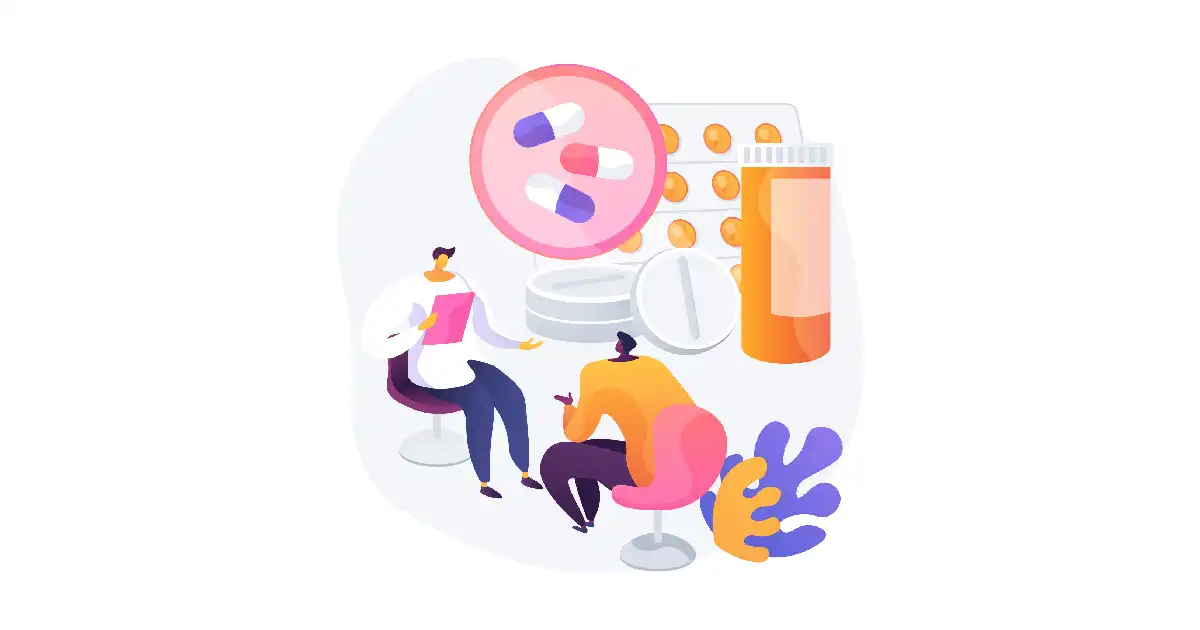
Blockchain-based supply chain tracking ensures the authenticity and traceability of medications, medical devices, and other healthcare products. This helps prevent counterfeit drugs from entering the market and ensures patients receive genuine, high-quality treatments.
Healthcare providers can trace medications and medical products right from the manufacturer to the patient. And they can quickly identify and confiscate any counterfeit supplies they come across.
This tracking system helps doctors and hospitals ensure that the drugs and supplies they use are legitimate. By having visibility into the entire supply chain, they can verify the authenticity and quality of what they prescribe and use in treatments.
This is crucial, especially considering that around 40% of drugs are produced overseas.
Keeping the patient's safety in mind and ensuring they receive genuine medications, blockchain technology brings transparency and accountability to the supply chain.
Blockchain is thus a powerful tool in the fight against counterfeit drugs.
3. Low premiums and co-pays with DeFi Insurance
Blockchain-based DeFi (Decentralized Finance) insurance is making waves in the insurance ecosystem.
But these services will soon be expanded to other applications, such as health.
Blockchain promises to bring benefits like reduced costs to traditional health insurance.
How? In decentralized finance (DeFi) insurance protocols, the middleman is eliminated, and insurance is provided directly to consumers.
Let me give you an example. Nexus Insurance, a popular DeFi insurance platform, operates through a unique model. Investors can purchase cryptocurrency tokens, which are then held in a risk-sharing pool. The funds gathered from token purchases fund insurance policies for customers.
Token holders not only hold tokens that can potentially increase in value, but they also receive a percentage yield based on the overall profitability of the insurance protocol.
Applying a similar principle to health insurance will benefit patients.
4. Efficient Claims Processing
Blockchain can make the insurance claims process more efficient.
It reduces paperwork, improves transparency, and automates verification.
This means faster claims processing and quicker patient reimbursement, reducing unnecessary administrative hassles.
Blockchain provides a decentralized and immutable ledger that securely records and stores insurance claims data. This eliminates the need for multiple parties to maintain separate records, reducing duplication of effort and minimizing the chances of errors or discrepancies.
With blockchain, the entire claims process can be automated through smart contracts. These self-executing contracts automatically trigger the necessary actions and validations based on predefined conditions, reducing the need for manual intervention and speeding up the overall process. It enables faster verification and approval of claims, leading to quicker payouts to the insured parties.
Moreover, blockchain ensures transparency in the claims process. All stakeholders involved, including insurers, healthcare providers, and even insured individuals, have access to the same set of verified data on the blockchain. Transparency helps in reducing fraud.
5. Seamless sharing of patient data

Blockchain enables the seamless sharing of patient data between healthcare providers. This improves care coordination, reduces duplication of tests, and ensures accurate diagnoses and treatment plans.
Patients also experience smoother transitions between different healthcare facilities and have their information readily available to the relevant healthcare professionals.
Healthcare data is fragmented, requiring slow and manual requests for patient information. This makes it challenging to create a comprehensive, secure, and transportable health record.
Blockchain has the potential to solve this problem, benefiting patients, providers, and insurance companies by improving healthcare outcomes while reducing costs and friction.
With a blockchain database, any changes made to records are visible to all involved parties, ensuring updates are synchronized across the entire network. It also enables easy verification of healthcare providers' credentials when adding them to insurance or hospital systems for outpatient care.
6. Leveraging telemedicine
So, you know how telemedicine and telehealth solutions are becoming really popular these days? We can make them even better with blockchain technology.
One cool thing blockchain does is set up something called smart contracts.
Think of smart contracts as digital agreements that automatically execute certain actions when specific conditions are met. In the case of telemedicine, these contracts can help streamline and automate processes. For example, let's say you schedule an online appointment with a doctor. A smart contract can be set up to handle all the administrative stuff, like sending you appointment reminders or processing the payment.
Now, here's where the blockchain part comes in. Instead of using a regular, public blockchain, we can use a privately owned one. This means the blockchain is controlled and accessible only to authorized parties like healthcare providers and patients.
Blockchain maximizes healthcare and enhances the patient experience. Let's look at some of the leading companies in the blockchain revolution:
- BurstIQ: Provides HIPAA & GDPR-compliant blockchain solutions. The solutions prevent opioid abuse and prescription drug misuse. They also offer up-to-date patient healthcare activity information.
- ConsenSys: Uses Ethereum blockchain for efficient drug and medical device tracking. Their applications include secure electronic health records (EHRs) and address drug security in clinical trials. Additionally, they explore incentivization through micropayments.
- Nebula Genomics: Leverages blockchain to advance genetics research and reduce costs. Further uses blockchain to protect and analyze genomic data, offering affordable genome sequencing and aiding disease research.
- Factom: Provides practical blockchain data solutions through their Blockchain-as-a-Service platform, enabling the development of business-ready apps.
- Blockpharma: Prevents patients from taking counterfeit medicines using a blockchain-based app for verifying medicine authenticity.
- Iryo: Utilizes blockchain for secure medical data transfer and allows patients to share their medical history globally.
- Guardtime: Enhances cybersecurity in healthcare through blockchain's cryptographic design.
- Chronicled: Ensures safe drug shipments and efficient medical supply chains with blockchain networks.
- Hashed Health: Focuses on reducing healthcare costs and administrative inefficiencies through blockchain and distributed ledger technology.
Benefits of Blockchain in Healthcare
The use of blockchain technology in healthcare offers several benefits, including:
1. Data Security and Integrity
With blockchain, healthcare data is stored in a super secure and tamper-proof system. It's like a digital vault that uses fancy encryption techniques to keep your information safe and intact.
Blockchain enhances the privacy and trustworthiness of healthcare data, which is critical for maintaining patient confidentiality.
2. Interoperability
Do you know how sometimes it feels like your medical records are stuck in different systems that can't talk to each other?
Well, blockchain can solve that problem.
It acts as a universal translator for healthcare data, so different doctors, hospitals, and even insurance companies can easily share information. It's like bringing everyone to the same table and making sure they all speak the same language.
This can lead to better-coordinated care and improved health outcomes.
3. Enhanced Data Sharing and Access Control
Blockchain enables granular control over data access and sharing permissions. This means that with blockchain, you get to be the boss of your health data. You can decide who gets to see it and for what purposes.
You can grant or deny access to different parties, like doctors, researchers, or even family members.
It's like having a lock on your medical file to which only you hold the key.
4. Improved Clinical Trials & Research
Blockchain can speed up the process of finding new treatments and cures. It allows for secure and transparent consent tracking, data collection, and analysis.
It helps researchers easily find and access anonymized data from different sources. This means they can analyze a lot more information, which leads to faster discoveries and better treatments.
It's like giving scientists a supercharged microscope to dig deeper into health data and uncover breakthroughs.
5. Supply Chain Management and Drug Traceability
Have you ever worried about the safety and authenticity of medications?
Blockchain can help with that too.
It keeps a record of every step a drug takes, from manufacturing to distribution. This means you can verify if a medication is genuine, and it also helps track recalls or expiration dates. It's like having a digital passport for each pill, ensuring it's the real deal.
6. Streamlined Claims and Billing Processes
Dealing with insurance claims and medical bills can be a headache.
But with blockchain, it becomes a lot smoother.
Smart contracts on the blockchain automate the process, so it's faster and more accurate. It's like having a super-efficient assistant who handles all the paperwork, ensuring you get the coverage you deserve without the hassle.
7. Data Analytics and Population Health
Blockchain helps researchers and public health experts learn more about diseases and health trends.
They can spot patterns and make better decisions by pooling and analyzing data from different sources.
And don't worry; your privacy is protected because the data is anonymized. It's like putting puzzle pieces together to see the bigger picture of public health while keeping everyone's personal details a secret.
Remember, while these benefits sound fantastic, it's essential to keep in mind that blockchain in healthcare is still being developed and faces some challenges.
Potential Challenges and Limitations
Here are some challenges and limitations of blockchain that need to be considered:
1. Scalability
Blockchain technology, especially public blockchains like Bitcoin or Ethereum, can have trouble keeping up with a lot of healthcare data.
As the volume of healthcare data increases, the capacity of the blockchain to process and store that data may become a bottleneck.
It's crucial, therefore, to build scalable solutions that can handle the large-scale data requirements of the healthcare industry.
2. Achieving desired interoperability
Achieving interoperability between healthcare systems and ensuring standardized data formats and protocols remain ongoing challenges.
Integrating blockchain with existing healthcare infrastructure and achieving seamless data exchange between platforms and stakeholders requires significant coordination and standardization efforts.
3. Regulatory and Legal Considerations
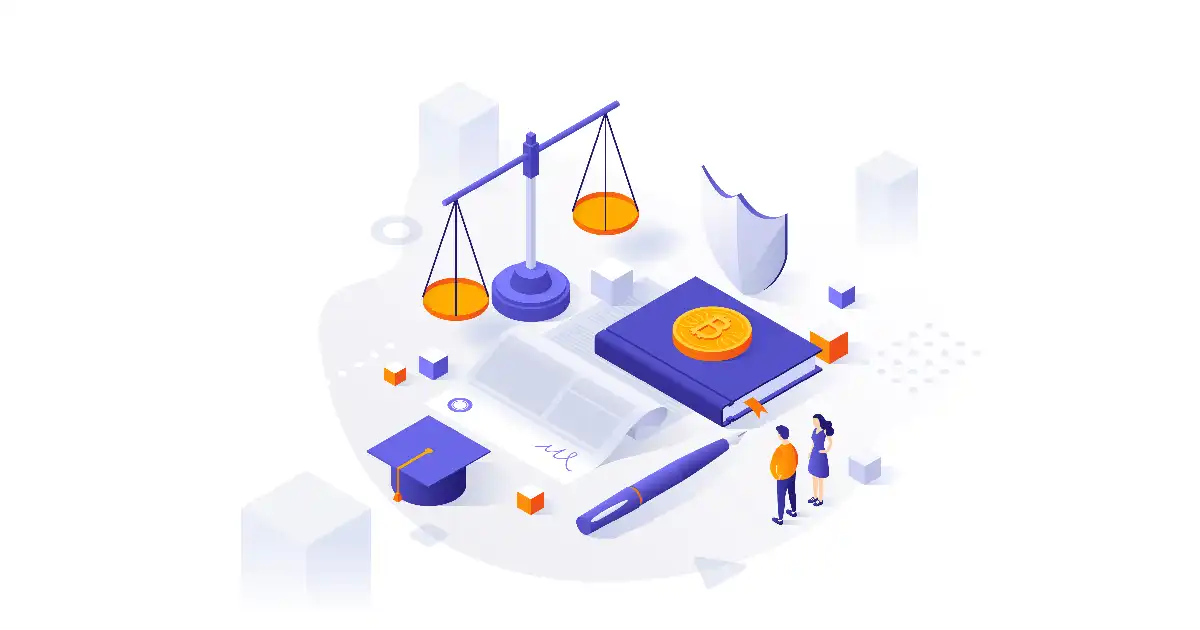
The rules and regulations for blockchain in healthcare are still evolving. It's like navigating through a changing maze of laws.
Compliance with privacy and security regulations, such as HIPAA (Health Insurance Portability and Accountability Act), can be complex when implementing blockchain solutions.
Clarification and adaptation of regulations to accommodate the unique aspects of blockchain technology are necessary to ensure legal compliance.
4. Skill Gap
Blockchain technology is still relatively new and complex.
The healthcare industry needs professionals with a deep understanding of blockchain and its potential applications to drive adoption and ensure effective implementation.
Bridging the skill gap is essential for realizing the full benefits of blockchain in healthcare.
5. Shift to a paperless approach
A lot of people, including doctors and patients, still love using paper records in healthcare. They feel more comfortable with traditional file systems and keeping physical copies.
Even many medicine shops rely on prescriptions and paper records for their inventory.
So, switching to a completely paperless blockchain network is quite a challenge.
6. Data Privacy and Confidentiality
Health data is highly sensitive, and countries have laws to safeguard data privacy.
Storing this data on a blockchain, where it's visible to all participants, poses a significant risk to privacy, even if it's de-identified.
Even storing metadata about health data on the blockchain raises concerns, as it could indirectly reveal patient identities and cannot be erased.
7. Hesitation in Blockchain adoption
The widespread adoption of blockchain technology in healthcare requires significant investment, infrastructure changes, and technical expertise.
Many healthcare organizations may be hesitant to adopt blockchain due to the perceived complexities, costs, and uncertainties associated with the technology.
Integrating blockchain with existing systems and workflows also poses integration challenges and requires change management efforts.
The Future of Blockchain in Healthcare
The future holds great potential for blockchain to transform patient experiences in the healthcare domain. Here's a glimpse of what it could look like.
Blockchain technology could be used to create personalized health records that follow you wherever you go.
So, blockchain promises a future where there is no more digging through stacks of paperwork or starting from scratch with a new doctor. Instead, your medical history would be securely stored on the blockchain, making it easily accessible to healthcare providers whenever you need it.
But it doesn't stop there. Blockchain could also revolutionize how we handle prescriptions.
Prescriptions written on the blockchain would be automatically recorded, making it easier to track and verify medications. No more worrying about whether you get the right dose or the medicine is legit.
Moreover, blockchain can empower patients to participate more actively in their own healthcare decisions.
With smart contracts, you can control who access your health data and for what purpose. You could even share your data with researchers or participate in clinical trials, all while knowing your privacy is protected.
But wait, there's more! Blockchain technology also promises to streamline the insurance process. As a result, claims could be processed faster, reducing those frustrating delays. Plus, you can rest easy knowing that the information on the blockchain is secure and can't be tampered with.
So, to sum it up, the future of blockchain in healthcare holds incredible possibilities. From personalized health records to transparent prescriptions, patient empowerment, and efficient insurance processes, it's all about making your healthcare journey smoother, safer, and more personalized.
Develop Blockchain-enabled Solutions for Healthcare with Imaginovation
Imagine a world where medical records are secure, transparent, and easily accessible. Picture a system that eliminates fraud and ensures the integrity of patient data.
This is the power of blockchain, and you can be part of it.
Join the league of forward-thinking organizations that are leveraging blockchain to revolutionize healthcare.
Build an amazing blockchain-based solution for your healthcare business with Imaginovation.
We have the expertise and dedication to be your reliable partner in bringing your idea to life. Our team of skilled developers and innovators will work closely with you to understand your unique requirements and create tailor-made blockchain solutions for you.
We are an award-winning technology company. Contact us today and embark on an exciting journey of innovation and success.
Let's talk.





